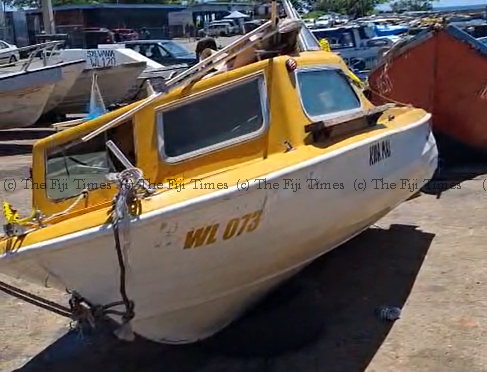As the search continues for three people missing at sea, we are reminded once again of the importance of water safety. It’s an issue that cannot be taken lightly in a nation surrounded by the ocean.
A tragic incident has claimed one life and left three others, including a seven-year-old boy, still unaccounted for after what was meant to be a routine Sunday fishing trip went terribly wrong.
The group had set out from Saweni Beach, just outside Lautoka City, around 2.30pm, heading toward Cakaulevu, a popular fishing spot behind Vio Island. Among those on board were Basant Singh, whose body was later recovered by police, and survivor Abdul Ashif Hakh, along with the still-missing Imraz Zain Iqbal, Junaid Ali Shah, and young Arshad Irfan Khan.
According to Mr Hakh, the day began with calm seas and clear weather. “It was fine when we left the mainland,” he said. But hours later, nature turned. “At half past seven, suddenly the weather changed. We all jumped into the water before the boat went down.”
In those desperate moments, he threw a life jacket to his seven-year-old nephew before they drifted apart in the darkness. After swimming for hours, exhausted and alone, he eventually found a shallow section of reef where he could call for help. “I couldn’t hear any of them,” he recalled sadly. He was later rescued by a passing boat.
Police spokesperson Wame Bautolu confirmed the report and said the Fiji Police Force’s water division had joined the search.
This tragedy cuts deep. It is heartbreaking not only because of the lives lost and those still missing, but also because it reminds us of how quickly joy can turn into despair at sea. A lot of Fijians love fishing and boating as pastimes. They are woven into our daily lives, our livelihoods, and our sense of freedom. But we say, the sea, as generous as it can be, demands respect.
Mother Nature is unpredictable. The weather can be calm and beautiful one moment, and menacing the next. That unpredictability is what makes water safety so important, and why preparation must always be at the heart of any trip out to sea.
There are lessons here for all of us, from recreational boaters to experienced fishermen. Checking weather forecasts before departure is important, but so too is understanding how rapidly conditions can change, especially in coastal waters. Let’s remind ourselves that life jackets must be worn, not just carried. Let’s accept that emergency communication devices, flares, and proper navigation tools can make the difference between life and death.
It is also important that boat operators ensure their vessels are seaworthy and equipped with the necessary safety gear. These may seem like small steps, but they can prevent enormous tragedy. We must normalise safety habits the same way we normalise wearing seatbelts in vehicles, not because we expect disaster, but because we respect the risks.
We live in a nation blessed and bound by the ocean. Our rivers, reefs, and waters sustain us, but they also challenge us to be cautious and prepared. Each tragedy at sea must be a lesson for us.
As the families of the missing wait for news, the pain they feel should serve as a reminder to us all, that safety at sea is an obligation.
So let us learn from this story. Let us build a culture where vigilance and preparedness are second nature. The sea will always call to us. Let’s answer it with respect, awareness, and care.



